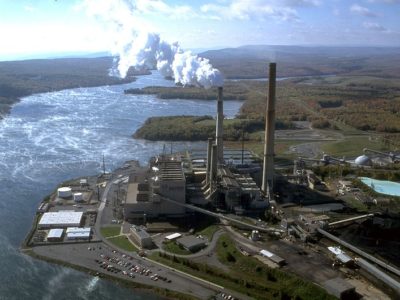Month: March 2019
Actions to Improve California Water Rights Administration and Oversight for Future Droughts
Part 3 in a Series on Improving California Water Rights Administration and Oversight for Future Droughts
In California, the next drought is always looming on the horizon. While we don’t get advance warning of when a drought will occur, how long it will last, or how severe it will be, we do have advance knowledge that drought planning and preparation are important. First, we know water management during droughts can have …
CONTINUE READINGShackling EPA Risk Assessment
EPA’s scientific advisory committee, which is packed with industry representatives, wants to make it a lot harder to prove pollution is dangerous.
CONTINUE READINGTrump on the Environment: A Study in Falsehood
Hardly anything Trump says about the environment is actually true, or even arguable.
The Washington Post has a list of false statements by Trump, which turns out to be searchable by topic. They’ve found that “In the first eight months of his presidency, President Trump made 1,137 false or misleading claims, an average of five a day.” As of March 17, he was up to 9,179 false statements. …
Continue reading “Trump on the Environment: A Study in Falsehood”
CONTINUE READINGThe EPA’s Proposed Standards for Coal Power Plants Increase Pollution Without Real Justification
The public comment period for proposed revisions to EPA’s proposed emissions standards for fossil-fuel fired power plants under the Clean Air Act ended last week. Emmett Institute staff have submitted two comment letters on the rule (see Sean’s post on one of the letters here; that letter itself is here). The standards—called new source performance standards—apply to …
CONTINUE READINGEPA Shouldn’t Roll Back Coal Power Plant Emissions Standard, Conclude Experts in Electrical Grid Management and Pollution Control Technology Innovation
Emmett Institute Faculty File Two Comment Letters on Behalf of Experts, Demonstrating Flaws In Proposed Rollback of New Source Performance Standard for New Coal-Fired Power Plants
In 2015, EPA set greenhouse gas emissions standards for new coal-fired and natural gas-fired power plants under the Clean Air Act’s New Source Performance Standards program, Section 111(b) of the Act. These standards ensure that new plants can be built only if they incorporate state-of-the-art emissions controls. Unfortunately, in late 2018, the Trump Administration EPA proposed …
CONTINUE READINGSymposium Brief: Insuring California in a Changing Climate
New CLEE report highlights key climate-related risks and opportunities for insurance industry
Climate change poses risks to California’s economy, residents, infrastructure, cities, and natural resources. The insurance industry, which provides financial protection to governments, individuals, and businesses for risks they face, will play a central role in efforts to the harmful impacts of climate change on California. Yet the industry itself is vulnerable to a number of …
Continue reading “Symposium Brief: Insuring California in a Changing Climate”
CONTINUE READINGCoastal Communities Demand EPA Update Decades-Old Oil Spill Regulations
Written in Collaboration with Camila Gonzalez*
Coastal communities are bracing themselves. Thirty years after the Exxon Valdez oil spill in Alaska, and almost nine years after the BP Deepwater Horizon rig explosion in the Gulf of Mexico, they are facing the threat of another catastrophic oil spill. The Trump Administration is paving the way. The Bureau of Ocean Energy Management will …
Continue reading “Coastal Communities Demand EPA Update Decades-Old Oil Spill Regulations”
CONTINUE READINGGuest Blogger Stephanie Oehler: California Legislators Propose Framework to Radically Reduce Plastic Waste
Senate Bill 54 would phase out non-recyclable plastics and require more source reduction and recycling by 2030
California may soon pass new legislation that would tackle a major contributing factor to global plastic pollution – single-use plastic packaging and products. While experts continue to push for comprehensive federal legislation on plastic waste, California’s actions could have widespread benefits. State residents consume large quantities of plastics and California is often an early adopter …
CONTINUE READINGDowngrading OIRA
The acting regulatory “czar” is the least experienced in history.
Overlooked amidst all the other news, the White House picked a new acting regulatory czar earlier this month. The acting Director of the Office of Information and Regulatory Affairs is Paul Ray, who is very junior and a virtual unknown. It’s difficult to imagine that he’s going to be very effective at telling cabinet officials …
Continue reading “Downgrading OIRA”
CONTINUE READINGFormer California Insurance Commissioner Dave Jones Joins CLEE to Work on Financial Risk from Climate Change
Register for Wednesday 10am webinar to welcome Jones and discuss new CLEE insurance policy brief
Commissioner Dave Jones just concluded two successful terms leading the California Department of Insurance, where he distinguished himself as a pioneer in efforts to address the risks that climate change poses to the insurance sector. The Center for Law, Energy and the Environment (CLEE) is now pleased to welcome him to our team, where he …
CONTINUE READING












